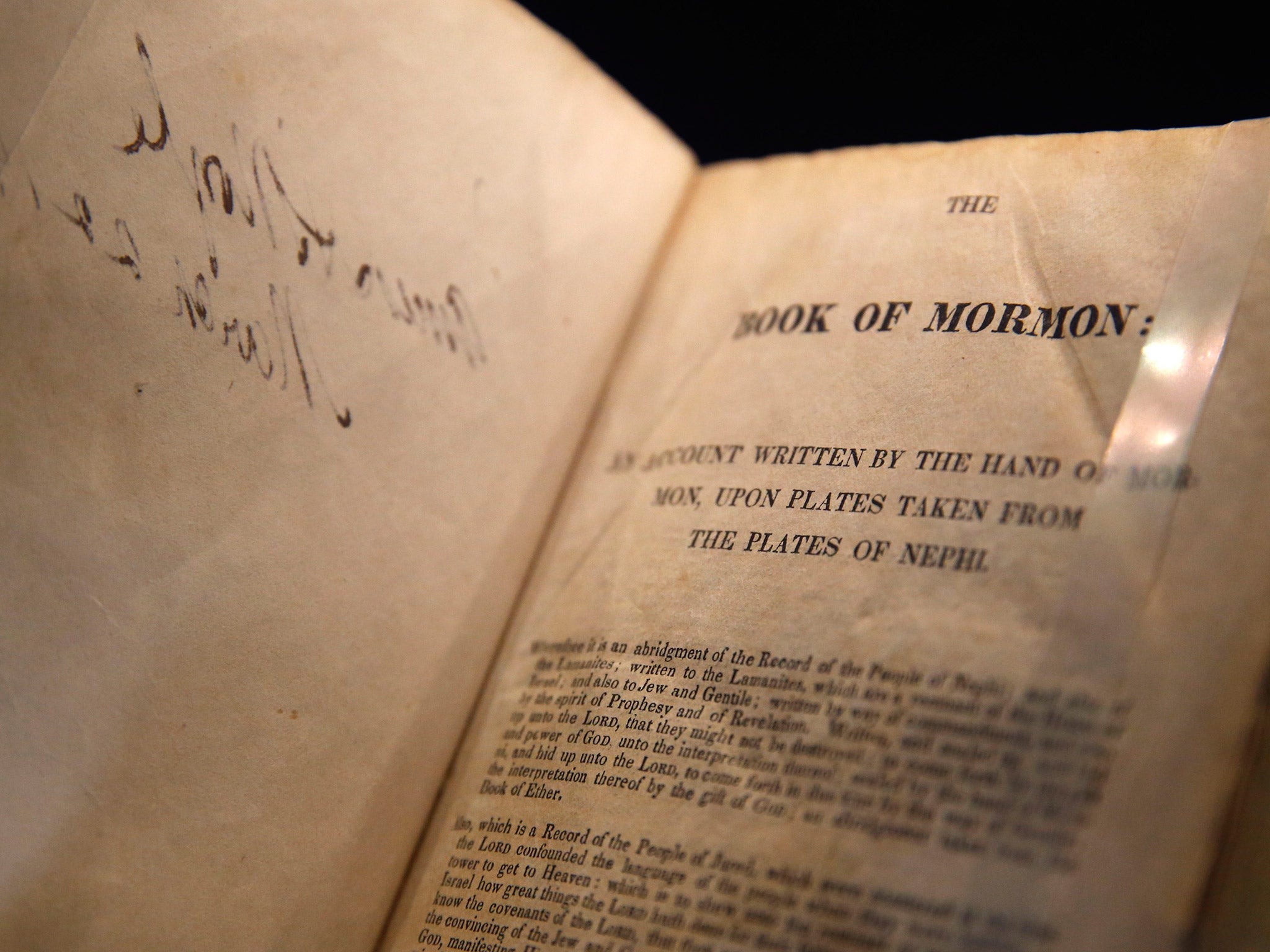Religion can have same effect on the brain as taking drugs, study finds
Researchers looked at how 19 young Mormons' brains were affected when they 'felt the spirit'

Your support helps us to tell the story
From reproductive rights to climate change to Big Tech, The Independent is on the ground when the story is developing. Whether it's investigating the financials of Elon Musk's pro-Trump PAC or producing our latest documentary, 'The A Word', which shines a light on the American women fighting for reproductive rights, we know how important it is to parse out the facts from the messaging.
At such a critical moment in US history, we need reporters on the ground. Your donation allows us to keep sending journalists to speak to both sides of the story.
The Independent is trusted by Americans across the entire political spectrum. And unlike many other quality news outlets, we choose not to lock Americans out of our reporting and analysis with paywalls. We believe quality journalism should be available to everyone, paid for by those who can afford it.
Your support makes all the difference.Religious experiences have a similar effect on the brain as taking drugs, according to a new study.
Scientists at the University of Utah used MRI scans to monitor the brain activity of 19 devout Mormons while they carried out a variety of tasks including resting, watching a church announcement about financial reports, praying, reading quotations from non-Mormon religious leaders, and reading the Bible.
The researchers specifically choose young Mormons – seven women and 12 men – who had all carried out the one to two years of missionary work that most members of their faith are expected to undergo.
During the tasks the participants were told to press a button when they "felt the spirit".
When studying the brain scans, the researchers noted certain brain regions consistently lit up when the participants reported spiritual thoughts.
These are the same parts of the brain which have lit up when participants in previous studies have listened to music, experienced feelings of love and taken recreational drugs.
This section of the brain, the nucleus accumbens, is known as the the brain's "reward centre" which controls addiction and plays a role in the release of dopamine – one of the chemicals which control a person's mood.
Dr Jeffrey Anderson, the neuroradiologist who led the study, told CNN: "These are areas of the brain that seem like they should be involved in religious and spiritual experience.
“But yet, religious neuroscience is such a young field – and there are very few studies – and ours was the first study that showed activation of the nucleus accumbens, an area of the brain that processes reward.
“Billions of people make important decisions in life based on spiritual and religious feelings and experiences. It's one of the most powerful influences on our social behavior.
“Yet we know so little about what actually happens in the brain during these experiences. It's just a critical question that needs more study.”
Join our commenting forum
Join thought-provoking conversations, follow other Independent readers and see their replies
Comments